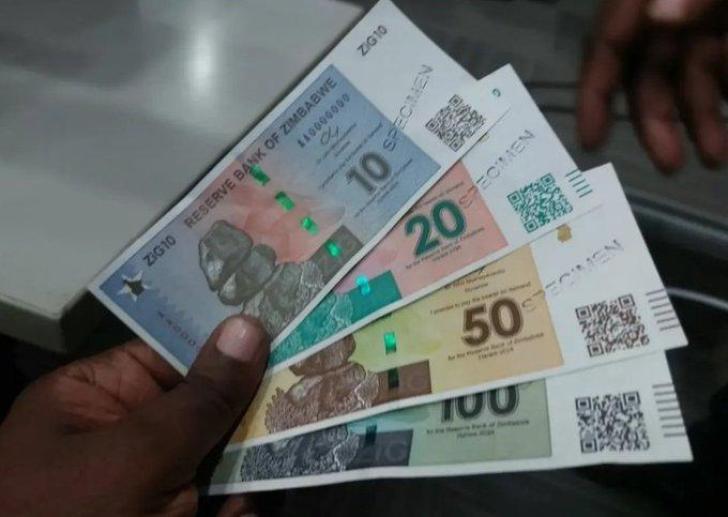News / National
'ZWG inflation won't affect consumer purchasing power'
05 Jun 2025 at 10:07hrs | Views

The Reserve Bank of Zimbabwe (RBZ) has downplayed alarm over the country's surging annual ZWG inflation, urging economic players to disregard year-on-year figures and instead focus on more reflective month-on-month inflation rates.
This comes after the Zimbabwe National Statistics Agency (Zimstat) reported that annual inflation reached 92.1% in September 2025, a spike that has drawn concern from the business community and economic analysts. Industry leaders blame the inflationary pressures on the RBZ's September 2024 directive that devalued the local currency by 43%, a move they argue distorted pricing and interest rate stability.
In a statement issued Wednesday, RBZ Governor Dr John Mushayavanhu attributed the sharp rise in annual inflation to statistical distortions caused by the transition from Zimbabwean dollars (ZW$) to the Zimbabwe Gold (ZWG) currency.
"Annual inflation figures are currently being influenced by a base effect," said Mushayavanhu. "This stems from the once-off spike in monthly inflation - from 5.8% in September 2024 to 37.2% in October 2024 - following the ZWG introduction."
The RBZ said Zimstat could only begin publishing annual ZWG inflation data from April 2025, after accumulating a full year of data under the new currency regime. As a result, comparisons with previous ZW$ inflation data create misleading impressions about current pricing trends.
Mushayavanhu reassured the public that the high annual inflation will not materially impact purchasing power, since most of the inflationary effect has already been felt and absorbed by the economy.
"The current trend in annual inflation will likely persist until September 2025 before beginning to fall, ultimately aligning with the low and stable monthly inflation we are seeing," he said.
Projections from the RBZ show a downward inflation trend, with annual inflation expected to drop to 30% by the end of December 2025, and further into single-digit territory in the medium term.
"Given the current pricing environment, annual inflation is not a useful indicator for decision-making. Economic agents should instead focus on monthly ZWG inflation, which directly reflects the present cost of living and purchasing power," said the governor.
Mushayavanhu emphasized that tight monetary policy remains in place to maintain price stability while supporting economic growth, adding that the RBZ is committed to preserving the value of the ZWG currency as the economy transitions toward macroeconomic stability.
The business community, however, continues to express concern over rising operational costs and the uncertainty created by fluctuating interest rates, calling for greater policy predictability and communication from authorities.
This comes after the Zimbabwe National Statistics Agency (Zimstat) reported that annual inflation reached 92.1% in September 2025, a spike that has drawn concern from the business community and economic analysts. Industry leaders blame the inflationary pressures on the RBZ's September 2024 directive that devalued the local currency by 43%, a move they argue distorted pricing and interest rate stability.
In a statement issued Wednesday, RBZ Governor Dr John Mushayavanhu attributed the sharp rise in annual inflation to statistical distortions caused by the transition from Zimbabwean dollars (ZW$) to the Zimbabwe Gold (ZWG) currency.
"Annual inflation figures are currently being influenced by a base effect," said Mushayavanhu. "This stems from the once-off spike in monthly inflation - from 5.8% in September 2024 to 37.2% in October 2024 - following the ZWG introduction."
The RBZ said Zimstat could only begin publishing annual ZWG inflation data from April 2025, after accumulating a full year of data under the new currency regime. As a result, comparisons with previous ZW$ inflation data create misleading impressions about current pricing trends.
"The current trend in annual inflation will likely persist until September 2025 before beginning to fall, ultimately aligning with the low and stable monthly inflation we are seeing," he said.
Projections from the RBZ show a downward inflation trend, with annual inflation expected to drop to 30% by the end of December 2025, and further into single-digit territory in the medium term.
"Given the current pricing environment, annual inflation is not a useful indicator for decision-making. Economic agents should instead focus on monthly ZWG inflation, which directly reflects the present cost of living and purchasing power," said the governor.
Mushayavanhu emphasized that tight monetary policy remains in place to maintain price stability while supporting economic growth, adding that the RBZ is committed to preserving the value of the ZWG currency as the economy transitions toward macroeconomic stability.
The business community, however, continues to express concern over rising operational costs and the uncertainty created by fluctuating interest rates, calling for greater policy predictability and communication from authorities.
Source - NewZimbabwe

















































